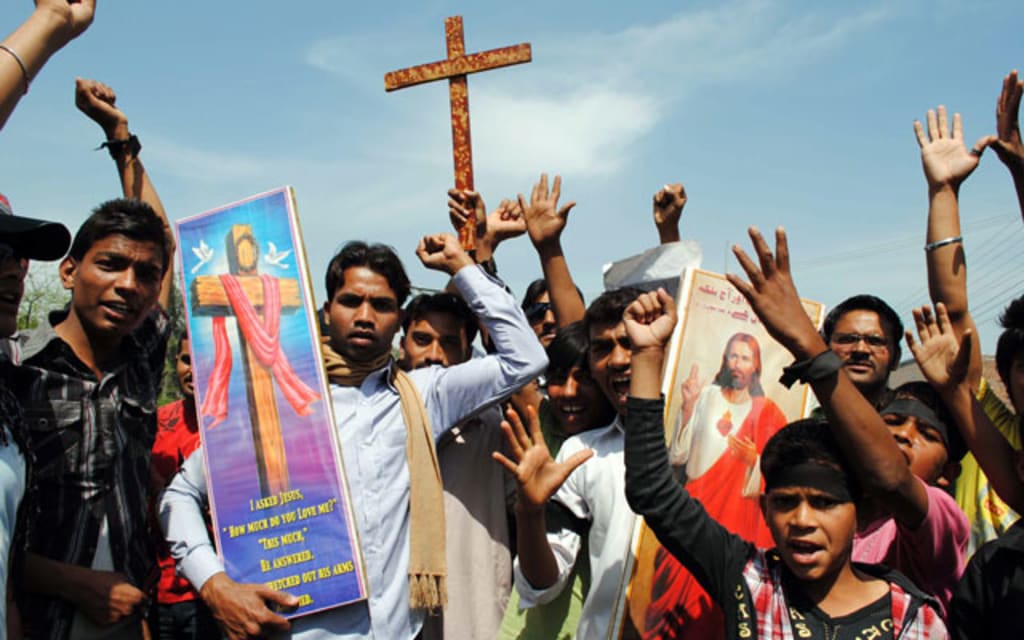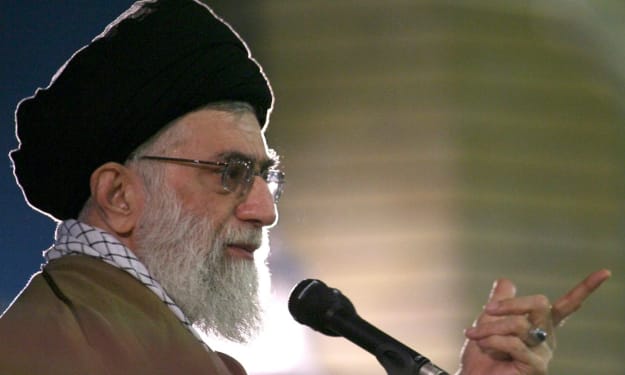Christians in Pakistan Need to Change the Narrative
The article below narrates the situation of Christians living in Pakistan. The writer has taken the stance against the complaint narrative adopted by the leaders of Christian community in last seventy years. The writer states how this narrative has thrown the community out of the mainstream. Instead of this narrative, the writers suggests to adopt the 'avail the opportunities narrative'.

Christianity has three hundred years life in the sub continent of India, which is now divided into five countries. Pakistan is one of those countries which came into being in the year 1947. I know there are people who would remind me of St. Thomas who visited this area, and these people would prove that Christianity exists in this area for two thousand years. I say yes to this narrative too. My issue is not to start a debate on when a first native person accepted Jesus Christ, the issue is how the Christians living in Pakistan have to get into the main stream of the country in this present time.
Since 1947, when Pakistan appeared as a country on the globe, the Christians living here have gown down and down in the country's social, political and economic life. We give examples of Justice A R Cornelius, he was the Chief Justice of the county's Supreme Court. He was a great man. But do we have any other example?
The fact is, the country got into a movement of Islamisation. The state got a bigotry stance regarding the religion. As the time passed after the independence in the year 1947, the state of Pakistan took a very strong stand and declared Islam as the state religion. This surely was the start of the downfall of the non-Muslims living in the country. The state laws and policies were all followed to make country's social, economic, and political scenario according to Islam. The state negated the presence of the non-Muslims living in the country. I agree it happened.
We, as patriot citizens of the country, chose to select our corners in our own localities, instead of starting a struggle to appear and prove ourselves in the country's main stream.
Yes, that was a difficult time and it still exists. But the need is to work on getting into the main stream, not to get closed in our small and dark apartments. The Christian religious and political leaders chose to write complaint letters to the world about the situation and condition of the Christians living in Pakistan. This complaint narrative grew and we have continued it until now. When our youth hears and reads that our leaders have complaints from the society and government, they get trapped, and instead of working hard to survive in this society, they choose to leave the country.
The Christians living in Pakistan have been very bold and outspoken in the last forty years, regarding presenting the complaint narrative. They used every medium to speak about the issues they faced on state and societal level. They used every forum to spread the word. They left no stone unturned to be heard of. They told the world that we are being discriminated in the country's social and political life. The discrimination kept the Christian community unheard in the country. This discrimination played its role in keeping the opportunities away from the youth of Christian community. BUT, this narrative of complaint also made youth unresponsive to the opportunities around. Instead of going for the opportunities, the youth escaped the opportunities. The menial work of cleaning the streets and cleaning the sewage system remained the identity of the majority of Christian community. It is reported by many organizations that, more than 85 percent of the Christians opt for sweepers' and sewer men's jobs.
Why is that? Why the couldn't the Christian community take advantage of the opportunities? Why couldn't the leadership of Christian community help the youth avail opportunities? During the last thirty years, not only government, but the corporate sector created opportunities in jobs and businesses. When the majority of the youth is going for entrepreneur-ships and good jobs, why is the youth from the Christian communities not going for opportunities in the government and corporate sector?
You can give examples that many of the Christian youth are in good government jobs, but does this really answer the situation? Recently, Sindh Public Service, Commission announced 73 jobs for the doctors, 63 among the selected are Hindus. Can we claim that we can do a thing like this in Christian community? Do we have 53 medical doctors from the Christian community? Do we even have 53 medical students all over the country? Still we want to continue our complaint narrative, and this narrative has created a youth that do not want to avail opportunities, but to speak against the discrimination. Are we more discriminated than Hindus? Do Muslims have more hatred for us than Hindus? The answer is NO. If Hindu youth is ready to avail the opportunities, why don't our youth go for that? I am part of the country's biggest lobbying delegation for minorities for the last seven years, we, the Christian members, insist on quota for minority youth in jobs and education, but the Hindu members in the delegation always oppose any quota. The reason is they know their youth competes on merit. And the reason we ask for quota is we know our youth can not compete on merit.
The need now is to change the narrative. Our leadership, both religious and political, need to encourage the youth to avail the opportunities around. The complaint narrative has thrown us out of the development process. We are good at telling the world about discrimination. Don't we know that complaints to the world may be a part of the overall strategy, but this alone can not make us progressive community. Our youth has the spirit and energy to compete but the leaders tell them about the discrimination. Please stop this, encourage youth to go for the opportunities. Our leadership should also opt for opportunities. This is the only possible solution to minimize the religious based discrimination in the society.






Comments
There are no comments for this story
Be the first to respond and start the conversation.